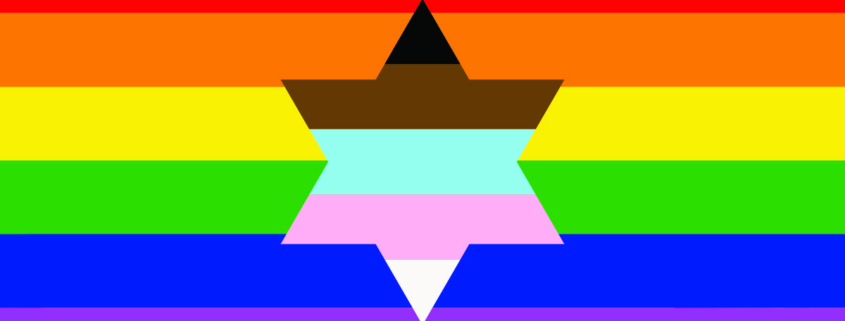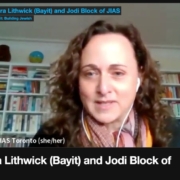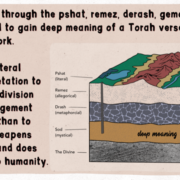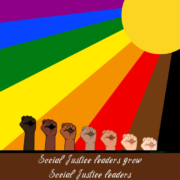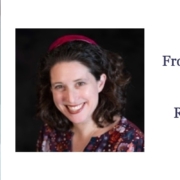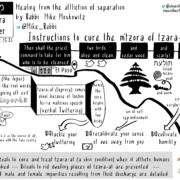Atoning for the Spiritual Abuse of Conversion Therapy and From Conversion to Allyship
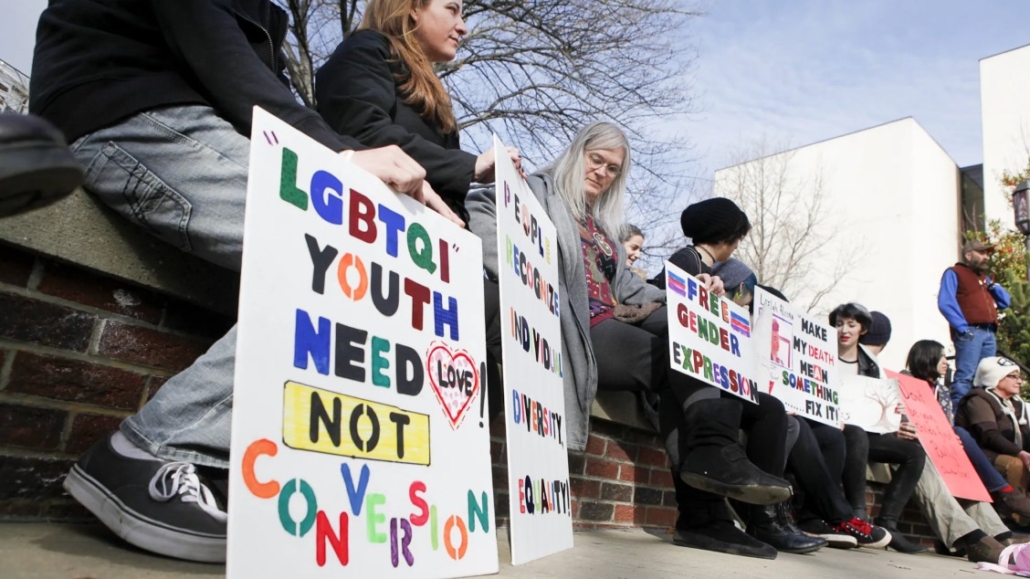
Atoning for the Spiritual Abuse of Conversion Therapy
Rabbi Mike Moskowitz
On Wednesday, I returned from the Global Interfaith Commission of LGBT+ lives, held in London, England. We met with human rights experts, medical professionals, and clergy. We heard first hand accounts of the torturous nature of conversion therapy. With overwhelming evidence, they confirmed what we all already knew; that while this fear driven practice doesn’t assist in actually changing a person’s gender identity or sexual orientation, it is harmful and highly effective in converting people out of religion.
More countries, including Israel and Canada – and two dozen states in the U.S., have made the malpractice of conversion therapy illegal. Yet, it still remains for religious communities, and especially the rabbis who lead them, to acknowledge and take responsibility for those who have left our communities because of the homophobia and transphobia that we have created.
For too long rabbinic leadership has denied the trauma inflicted on LGBTQ+ people by our communities, exempting themselves from engaging in a conversation by hiding behind the false piety of “what can we do, there is Leviticus 18:22?” This verse doesn’t provide cover for a rabbi who tells a young gay man to marry a woman (who doesn’t know that he is gay) because “How do you know you aren’t attracted to women when you have never even been with one?“ Or to tell a crowd gathered to hear words of Torah that “9/11 happened because we aren’t protesting enough against the gays.” It certainly does nothing to justify the dehumanizing request by a rabbi to ask a father not to bring his son, who is trans, to shul because it makes “people” uncomfortable.
We must acknowledge that our perverse desire to label G-d’s queer children as an abomination is a source of our own impurity that requires us to repent and cleanse ourselves from this unholy hatred. Reading Parshas Parah this past Shabbos, we learned about the redemptive ritual of the red heifer, which was able to לטהר טמאים ולטמא טהורים, purify the impure and make impure the pure. The red heifer had to be (Numbers 19:2) תְּמִימָ֗ה אֲשֶׁ֤ר אֵֽין־בָּהּ֙ מ֔וּם אֲשֶׁ֛ר לֹא־עָלָ֥ה עָלֶ֖יהָ עֹֽל without blemish, in which there is no defect and on which no yoke has been laid. The Chozeh of Lublin, sees this description as not only applying to the cow, but also to the moral awareness of human beings. He teaches that we need the red heifer to atone for those who see themselves as perfect and free from sin, but this is only because they don’t feel the responsibility of the yoke of Torah. The lack of the awareness of our own deficiencies and accountability to be responsible for others is a source of the impurity.
It is this particular impurity that we, as the Children of Israel, are destined to fight. Esav, in Genesis 25:25, is described as וַיֵּצֵ֤א הָרִאשׁוֹן֙ אַדְמוֹנִ֔י כֻּלּ֖וֹ כְּאַדֶּ֣רֶת שֵׂעָ֑ר וַיִּקְרְא֥וּ שְׁמ֖וֹ עֵשָֽׂו – The first one emerged red, all of him was like a hairy mantle, so they called his name Esav. Two verses later Jacob is called תם – perfect and wholesome. The Chamra Tava connects the redness of the red heifer to Esav and the blemish-free nature of the heifer to Yaakov. Thus the eternal battle between Yaakov and Esav, between impurity and purity, is echoed in the red heifer.
Tradition teaches that the source of Esav’s evil was his false sense of completeness (עשוי), he emerged first and saw himself as having already succeeded in the struggle. By contrast, Jacob who is assigned as the second child at birth, but identifies as the first born, has a lifelong transition. He begins as עקב, the heel, but after truly struggling and overcoming, he is called “Israel – ישראל” which can be parsed “לי ראש – my head”.
In reference to the red heifer, King Solomon, the wisest of all men, said: כָּל־זֹ֖ה נִסִּ֣יתִי בַֽחָכְמָ֑ה אָמַ֣רְתִּי אֶחְכָּ֔מָה וְהִ֖יא רְחוֹקָ֥ה מִמֶּֽנִּי – all of this I tested with wisdom, I thought I could become wise, but it is distant from me (Ecclesiastes 7:23). From a distance, it is impossible to understand the lived experiences of others and learn from them.
“Wisdom” doesn’t produce the horrific track record of conversion therapy. Only a willful refusal to see and to perceive can explain this abuse. We told those who were pure that they weren’t. And many believed us. Many of those who were close, are now far away. And some are lost to us forever, אָדָ֖ם כִּֽי־יָמ֣וּת בְּאֹ֑הֶל (Numbers 19:14).
It will take much more than the acquisition of wisdom to purify the rabbinate for the iniquity of ריחוק, distancing people from G-d. All we can do is create opportunities for Kiruv, helping folks come close again. This Thursday, March 31, is Trans Day of Visibility. A day marked annually to celebrate the lives of transgender folks is such an occasion. We can learn, listen, and expand our ability to understand beyond the simple cerebral wisdom of the head, to the limitless care of the soul.
. זֹ֚את חֻקַּ֣ת הַתּוֹרָ֔ה אֲשֶׁר־צִוָּ֥ה יְקוָ֖ק לֵאמֹ֑ר – This is the ritual law that G-d has commanded: Speak. (Numbers 19:2). Ben Ish Chai learns from this verse that sharing the words of G-d requires being in conversation. We must be in relationship, up close and deeply personal. Dr. Mary McAleese, former President of Ireland, said at the conference: “People judge G-d by how people of faith live their lives and treat others”. We must do away, once and for all, with the unholy practice of conversion therapy, cease this desecration of G-d’s Name, and restore the dignity of LGBT+ people in religious communities.
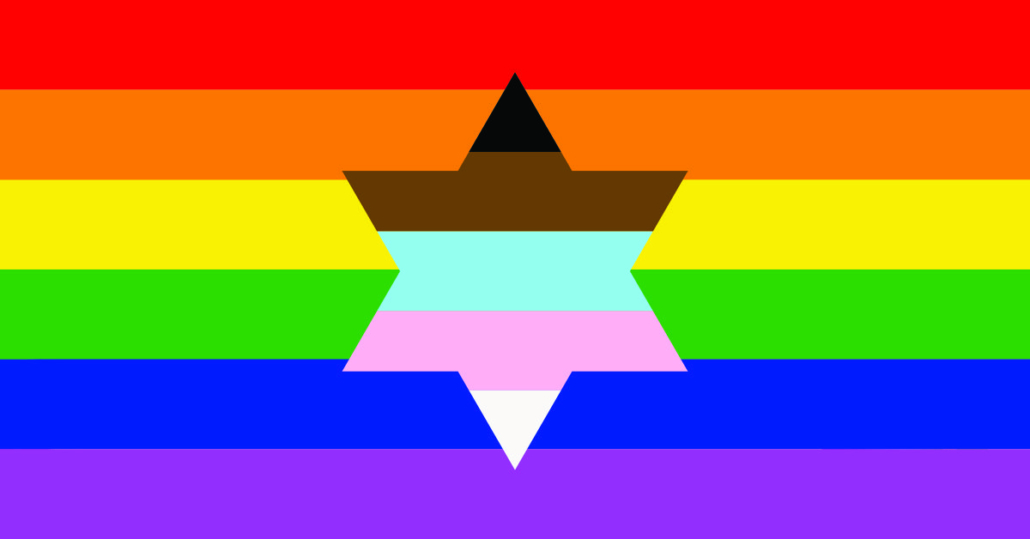
Davar Acher: From Conversion to Allyship
Rabbi Dara Lithwick
I also had the honour of attending the Global Interfaith Commission of LGBT+ lives last week (albeit virtually), with gratitude to Rabbi Moskowitz for the shidduch. I spoke about how Canada recently criminalized conversion therapy, a practice that seeks to change an individual’s sexual orientation to heterosexual, to change an individual’s gender identity to cisgender, or to change their gender expression to match the sex they were assigned at birth. On January 7, 2022, Bill C-4, a federal bill that amending Canada’s Criminal Code by creating new criminal offenses related to conversion therapy, came into effect.
In testimony (regarding an earlier version of the Bill) delivered during hearings at the House of Commons Standing Committee on Justice and Human Rights in December 2020, modern Orthodox Rabbi Michael Whitman of ADATH congregation in Montreal expressed how conversion therapy is antithetical to Torah and human rights, and implored parliamentarians to pass the law:
After learning about the destructive effects of conversion therapy and hearing first-hand the harm of its effects, I would rephrase the now widespread sentiment against conversion therapy, paraphrasing the Bible: “We are ashamed of what we did to our brothers and sisters. We saw them suffering when they cried out to us, but we did not listen to them.” Today I ask that you do listen to them and take action to prevent this particular cry from ever being repeated in Canada.
For me, this is a straightforward issue of human rights. I find the earliest expression of human rights near the beginning of the Bible: that every human being is created B’Tzelem Elokim—in the image of God, cherished by God, deserving of respect and dignity. Our rabbis in the Talmud expanded this into the wide-reaching rubric of Kavod HaBriyot—the innate right of human dignity, that we are prohibited to embarrass, humiliate or debase anyone.
[…] It’s central to my mission as a rabbi and my identity as a Jew to make every human being feel welcome and respected. Conversion therapy does just the opposite. It is inherently belittling and dismissive. It demands that people live inauthentically, untrue to themselves, and requires a harsh cure where there is no disease. Its methods are often humiliating and traumatizing. There is no place for it in Canadian society.
When I first came out to my parents as a late teen way back in the mid-1990s (before “Ellen”), I didn’t know if I could still be Jewish, or be a part of community, or raise a family. My parents were not accepting or supportive, and reached out to our rabbi to see if he had any advice regarding how to “straighten” me out.
Instead of finding names of conversion therapists, they walked out of the meeting with the rabbi, Rabbi Lerner in Montreal’s Temple Emanu-El Beth Sholom, having committed together to start a PFLAG (Parents and Friends of Lesbians and Gays) group at our Temple. It was a transformative moment both in my coming out process and in my Judaism. Rabbi Lerner’s allyship, his unwavering support of me as a person, as a member of the community, his belief that I was just right the way I was and that I should be proud, helped bring my family around to acceptance and love. Through him, I was able to see my Judaism and my God as welcoming, loving, and powerfully relevant to any life challenges I faced. I can draw a straight line (no/all puns intended) from there to my rabbinate.
In my day job as a lawyer I regularly lead Positive Space training sessions dedicated to making our workplaces more LGBTQ2+ inclusive, and to empower colleagues to bring their whole selves to work. One slide in my presentation shows a spectrum with attitudes towards gender and sexual diversity. One end is actively negative, moving towards passive acceptance in the middle, towards actively positive on the other end: Repulsion -> Pity -> Tolerance -> Acceptance -> Appreciation -> Support -> Active validation -> Nurturing.
Banning conversion therapy is one step, limiting actively negative practices against LGBTQ2+ community members. There is still a lot of work of healing, of tikun, to go from preventing actively negative practices to embracing actively positive attitudes, grounded in Torah, throughout our synagogues and schools and community spaces.
And this, I think, is a beautiful challenge, the important work that LGBTQ2+ members bring to our communities: do we have the vision, the hazon, to read Torah in a way that is affirming and inclusive? Do we have the strength to get beyond any biases and hangups that we might have, to see and honour and raise up the divinity in each other? This Thursday the 31st, on Trans Day of Visibility, will we heed Rabbi Moskowitz’ call to “learn, listen, and expand our ability to understand beyond the simple cerebral wisdom of the head, to the limitless care of the soul”?
After I came out to my parents, and even with my rabbi’s love and support, it still took my parents some time to gather up the courage to tell their parents, my grandparents, that I was bringing a woman home to Shabbos dinner. I mean, if my parents had so much trouble tolerating my sexual orientation, how would it go for a generation older?
And… when I finally came out to them, my bubby and zaidy and grandpa (the three who were still alive at the time) were amazing. They reiterated their love for me and for whomever I loved. And then my bubby and her friends took it to the next level – showing up (without me knowing beforehand) to cheer me on as I marched for marriage equality in the Montreal Pride Parade. Their active positivity, their loud and proud affirmation, seated in their lawn folding chairs on René Levesque Boulevard on a hot August day some 20 years ago, chattering in Yiddish and cheering love is love, showed what can be. A world, a Jewish world, where conversion therapy is a distant memory, and where allyship reigns. May this Trans Day of Visibility make this vision a reality for all.
Additional resources:
- On the Global Interfaith Commission on LGBT+ Lives and the Safeguarding Principles adopted at the conference last week: Religious leaders vow to protect LGBT+ lives in safeguarding agreement (pinknews.co.uk)
- On the Bill passed in Canada banning conversion therapy: Legislative Summary of Bill C-4: An Act to amend the Criminal Code (conversion therapy) (parl.ca)
#pride #transdayofvisibility #LGBT+ #LGBTQ2+ #2SLGBTQIA#bealight #btzelemelohim #2022GIC #allyshipmatters

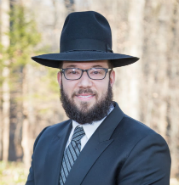
Rabbi Dara Lithwick, the lead builder at Builders Blog, is an advocate for LGBTQ2+ inclusion within diverse Jewish spaces and for Jewish inclusion in LGBTQ2+ spaces. When not at work as a constitutional and parliamentary affairs lawyer, Rabbi Dara is active as an outreach rabbi at Temple Israel Ottawa. She is a member of Bayit’s Board of Directors.
Rabbi Mike Moskowitz, a founding builder at Bayit and also a member of Bayit’s Board, serves as Scholar-in-Residence for Queer and Trans Jewish Studies at Congregation Beit Simchat Torah, a flagship LGBTQIA+ synagogue in New York City.

